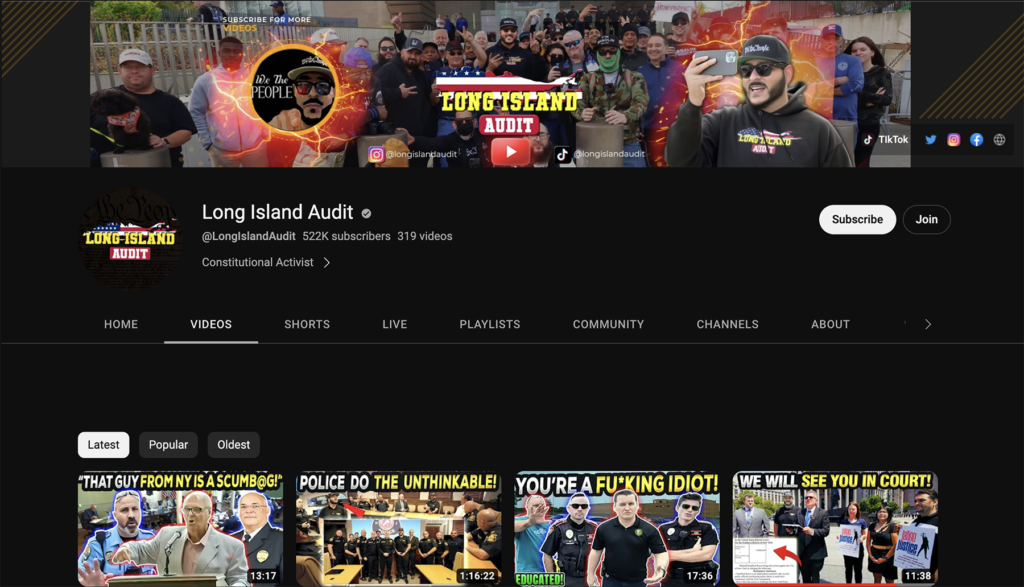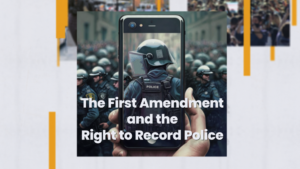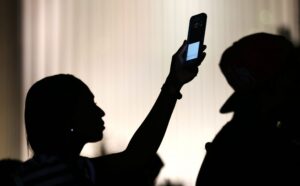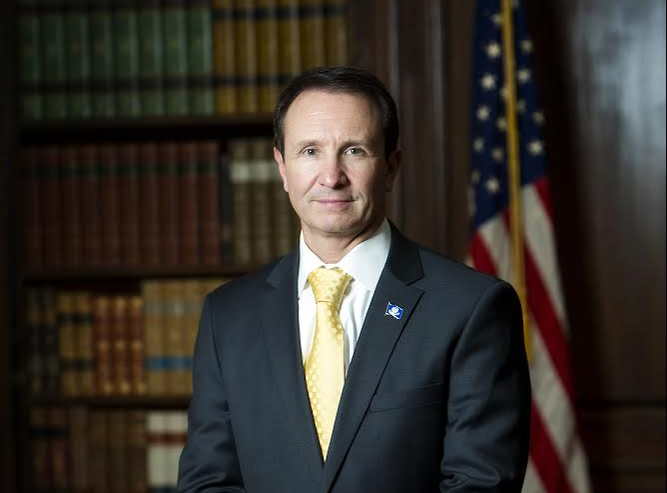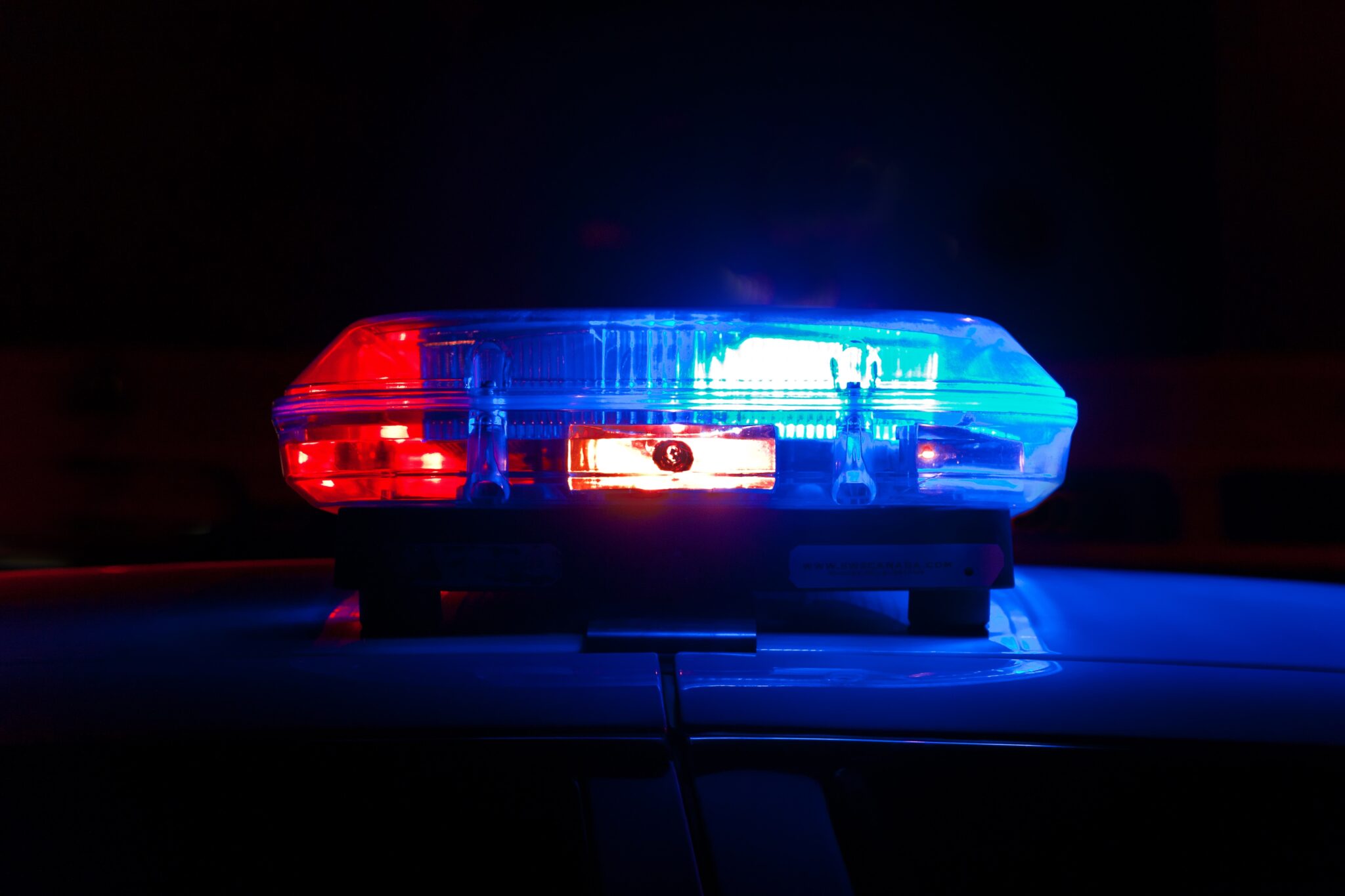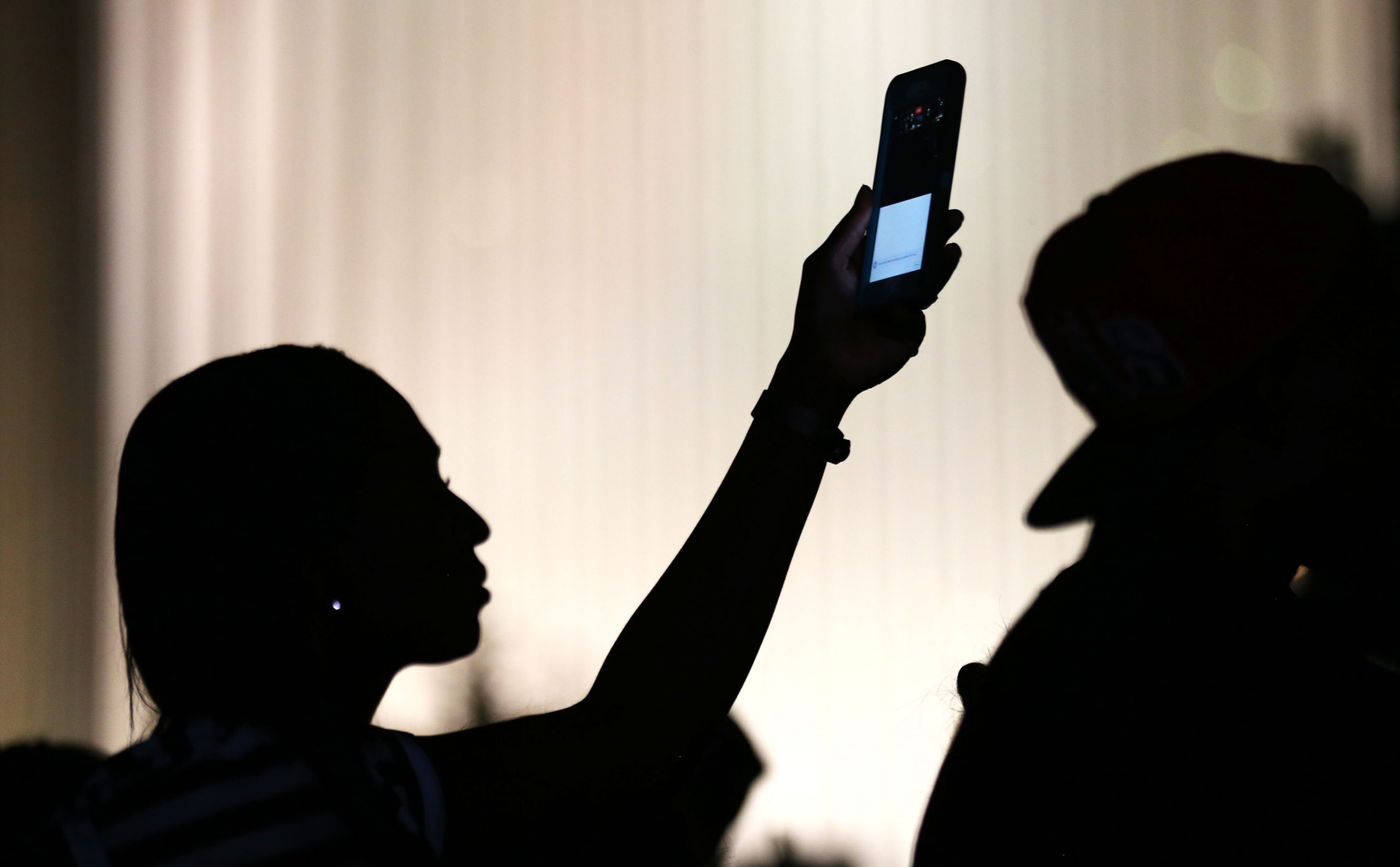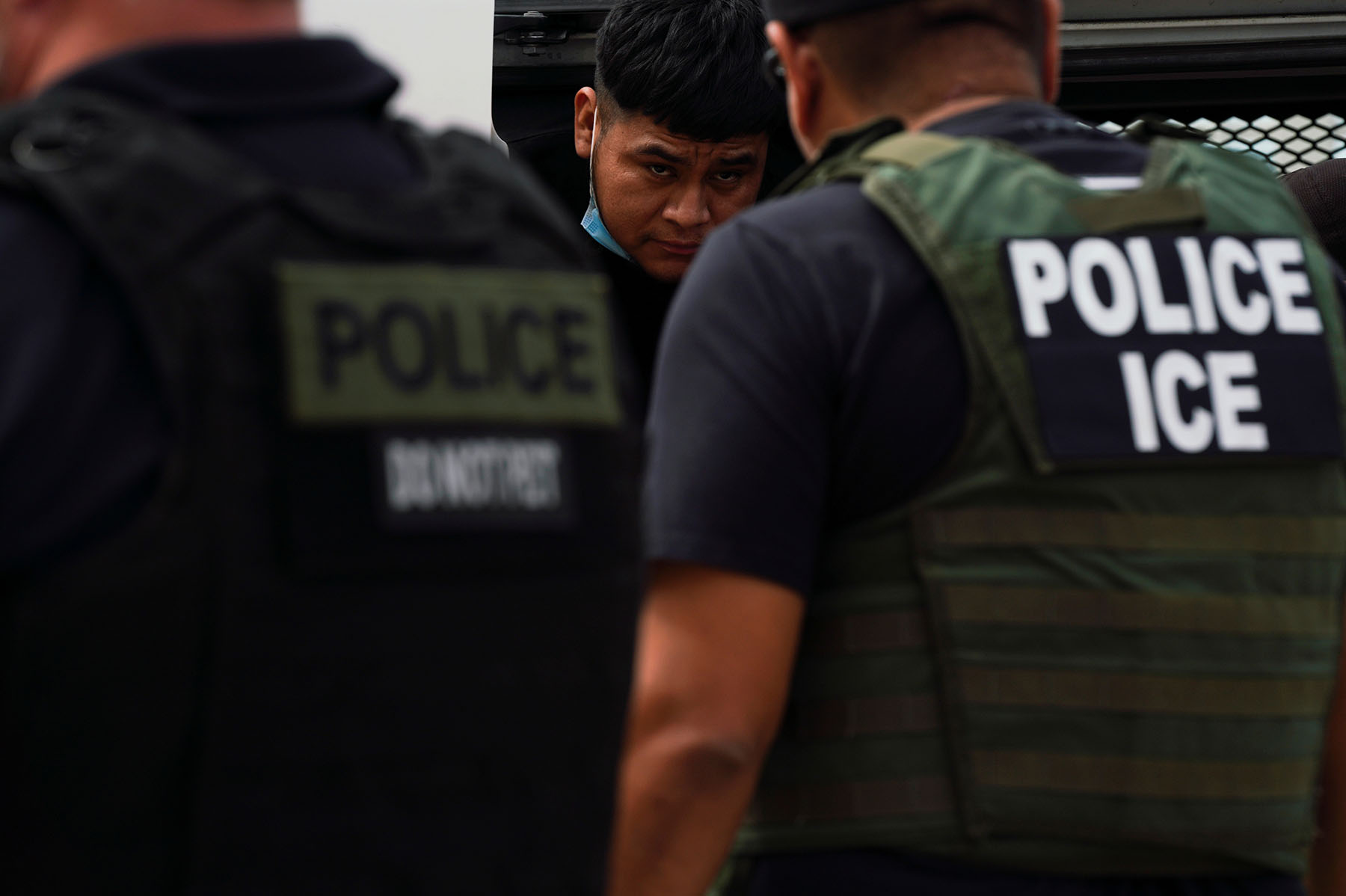A journalist who was arrested for recording inside of a New York Police Department precinct sued the city July 24, claiming a department policy violates state law and his First Amendment right to record police.
Over the past two years, independent journalist SeanPaul Reyes has acted as a so-called First Amendment “auditor” — someone who specifically films on public property and police stations to test the rights to record in a public space — and has garnered over 500,000 subscribers to his YouTube channel, Long Island Audit.
In April, Reyes was arrested after he recorded in the lobby of the 61st Precinct in Brooklyn while waiting to file a complaint. Reyes was recording when two NYPD officers advised him that recording was prohibited, referring to a sign posted in the lobby. Reyes recorded the interaction until he was put in handcuffs.
The lawsuit, filed in the U.S. District Court for the Southern District of New York by LatinoJustice PRLDEF on behalf of Reyes, states that the policy prohibiting recording and photography within precincts violates New York law and “chills the First Amendment rights of those who refrain from recording and denies the First Amendment rights of those who choose to exercise them in the publicly accessible areas of NYPD facilities.”
Reyes, according to the suit, “sought to peacefully exercise his First Amendment right to film in public and publicly accessible areas, to promote transparency and accountability within our government, and to ensure that our public servants recognize our rights and treat us with respect.”
First Amendment auditors typically post their interactions to YouTube, which has become a form of activism. Many audits are non-violent and uneventful. But some encounters have escalated dramatically, resulting in arrest and litigation.
Deep Dive
Controversial “First Amendment Auditors” Test the Right to Film in Public Spaces
“When I was arrested, I was simply doing my civic duty, helping expose an issue that my community has been harmed by for far too long,” Reyes said in a press release. “I was not interfering with police by simply recording my surroundings. It’s time this NYPD policy of harassing civilians over recording, and arresting individuals in retaliation is ended once and for all.”
Seventy-six percent of the U.S. population lives in states where federal appeals courts have recognized a First Amendment right to record police officers performing their official duties. The U.S. Supreme Court has not ruled on the issue. As a result, legal protections are fully secure only in those jurisdictions where federal circuits have issued a ruling. However, given the resounding support so far for this First Amendment protection, it seems highly likely that the remaining federal appeal courts would reach the same conclusion if the issue appears on their docket. The U.S. Court of Appeals in the First, Third, Fifth, Seventh, Ninth, Tenth and Eleventh have all ruled that the right to record police in public places is protected by the First Amendment. In February 2023, the Fourth Circuit followed suit.
Although the courts have recognized a First Amendment right to record the work of police officers in public, that right is not absolute. Recording in public is subject to “time, place, and manner” restrictions.
These are restrictions imposed on expression that are designed to maintain public safety and other valid concerns. Courts use a three-part test to assess whether they are consistent with the First Amendment. Restrictions must be content-neutral— meaning that they cannot be aimed at speech based on the subject matter. They must be narrowly tailored to serve a significant government interest, and leave open alternative channels of communication. For example, a local government could prohibit a protest taking place at 1 a.m. in a residential neighborhood in order to preserve peace and quiet during a time when people seek rest.
While the U.S. Court of Appeals for the Second Circuit has yet to rule on the First Amendment right to record police, a New York law passed in June 2020 provides protection for individuals to record police.
The passage of the law, the “Right to Record” Act, followed nationwide demonstrations in response to the killing of George Floyd by Minneapolis police. The incident was recorded by bystander Darnella Frazier on her cellphone, and accompanies hundreds of videos taken by bystanders documenting use of force by law enforcement against peaceful protestors.
But despite the passage of the act, the NYPD implemented a policy prohibiting recording and photography in public police precinct lobbies.
The policy states: “Members of the public are not allowed to photograph and/or record police activity within Department facilities. Members of the service may order any member of the public who is photographing or recording within Department facilities to stop such activity. If such person refuses to stop, then they should be ordered to leave the premises. If such person refuses to leave the premises, members of the service may take proper enforcement action under the trespass statutes.”
Andrew Case, supervising counsel at LatinoJustice representing Reyes, says the Right to Record Act does not include an exception for police precincts. He said the police created this rule “on their own.”
The lawsuit argues that the “NYPD bars recording in precincts to control footage of civilian-officer encounters, and not for any stated public safety purpose” that might qualify as a valid time, place or manner restriction.
Case said the NYPD’s goal is to “make sure that you can’t expose anything inside a precinct because the police might be embarrassed by it and that’s not an interest that the First Amendment protects.”
In Commonwealth of Pennsylvania v. Bradley (2020), the Superior Court of Pennsylvania ruled that there was no First Amendment right to make a video recording in the lobby of a police department. The court held that the ban on recording was a legitimate time, place and manner restriction because it helped prevent disclosure of confidential information on police investigations; protected the identity of undercover police officers and confidential sources; helped prevent retaliation against informants; and protected the privacy of crime victims. The restriction, the court stated, ensures “the integrity of police investigations and activity. The condition applies only to the Lobby and the interior of the police station, and not to areas outside of the police station, such as steps or entrances.”
Case says it’s hard to understand why privacy issues would be important within public police precinct lobbies, because “people are already exposed to their neighbors and community members.”
“No one is suggesting that people go and record inside private inaccessible areas of police precincts,” he said.
Reyes is not the only one in a legal battle in New York over the right to record in police precinct lobbies. In 2020, Patricia Rodney was arrested while filming inside of a Brooklyn precinct while she was filing a report for a missing blood sugar monitor. Rodney declined to stop recording, and officers arrested her. During the altercation, she broke her arm.
Rodney filed a federal lawsuit against the city in February 2022, claiming she was subjected to retaliatory violence as a result of engaging in her First Amendment right to record police.
The policy was denounced in an amicus brief filed by LatinoJustice and Right to Record Act sponsor Jumaane Williams.
“By its plain language and the clear intent of the drafters, the [Right to Record Act] was meant to protect this right as broadly as possible, including in the publicly-accessible areas of police precincts,” the brief stated.
People were unaware of the impact of this NYPD policy prohibiting recording in police precinct lobbies, Case said, “until that issue was tested and people started getting arrested.”
“It might not have been the biggest concern to the public, but I think it’s growing to become a concern now,” he said.
July 24, 2023 — Reyes v. City of New York
Tags
